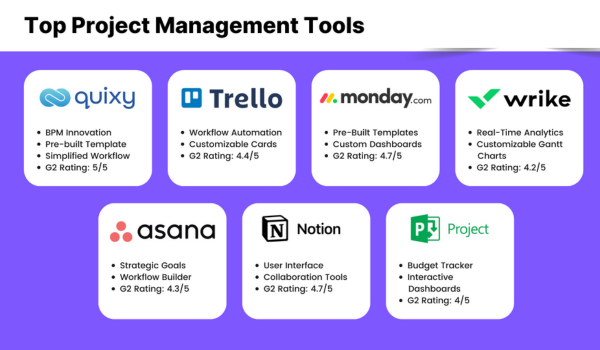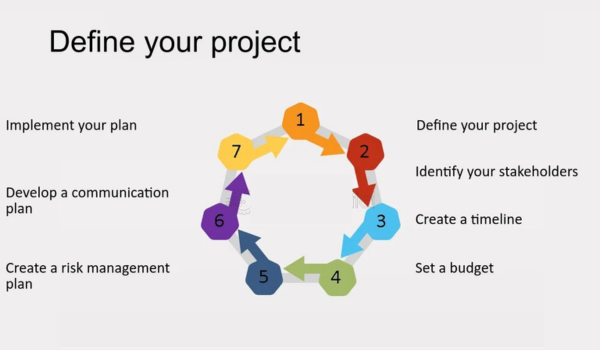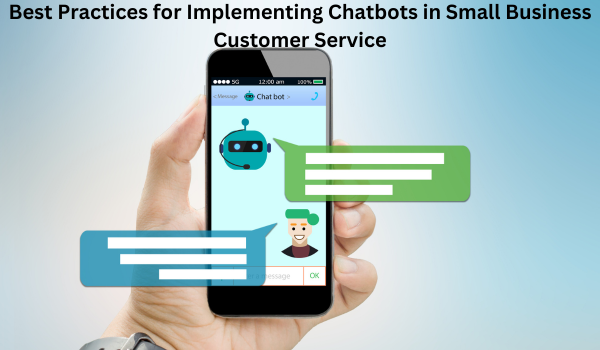Best Project Management Tools for Business Startups in 2024

Introduction
Starting a new business is an exhilarating adventure, but it comes with its fair share of challenges. One of the most significant hurdles startups face is managing projects efficiently. That’s where project management tools come into play. These tools can help streamline processes, improve collaboration, and boost productivity, which are all crucial for the success of a startup. In this article, we’ll explore the best project management tools for business startups in 2024 and how they can transform the way you work.
Understanding Project Management Tools
Definition and Purpose
Project management tools are software applications designed to assist in the planning, organizing, and managing of resources and tasks. They provide a framework for teams to collaborate, track progress, and achieve their goals efficiently. From scheduling tasks to managing budgets, these tools cover a wide range of functions that are essential for any startup.
Key Features to Look For
When selecting a project management tool, startups should consider features like task management, time tracking, collaboration capabilities, reporting and analytics, and integration with other software. These features ensure that the tool can handle the unique needs of a startup environment.
Criteria for Choosing the Best Tools
Usability
The tool should be user-friendly and easy to navigate. A steep learning curve can hinder productivity, especially in a fast-paced startup environment.
Scalability
As your startup grows, your project management needs will evolve. Choose a tool that can scale with your business.
Integration Capabilities
The ability to integrate with other software solutions you use, such as CRM systems, email marketing tools, and financial software, is crucial for seamless operations.
Cost-Effectiveness
Startups often operate on tight budgets. Therefore, it’s important to choose a tool that offers good value for money without compromising on essential features.
Top Project Management Tools for Startups in 2024
Trello
Overview
Trello is a visual project management tool that uses boards, lists, and cards to help teams organize tasks and projects.
Key Features
- Drag-and-drop interface
- Customizable boards
- Integration with other tools
- Automation with Butler
- Mobile app
Pros and Cons
Pros:
- Easy to use
- Highly visual
- Flexible and customizable
Cons:
- Limited advanced features
- Can become cluttered with large projects
Asana
Overview
Asana is a comprehensive project management tool designed to help teams manage tasks, projects, and workflows.
Key Features
- Task assignments
- Project timelines
- Customizable dashboards
- Integrations with over 100 apps
- Advanced Reporting
Pros and Cons
Pros:
- Powerful task management
- Excellent collaboration features
- Extensive integrations
Cons:
- Can be overwhelming for beginners
- Higher cost for premium features

Monday.com
Overview
Monday.com is a work operating system that enables teams to build and run workflows tailored to their needs.
Key Features
- Customizable templates
- Visual project tracking
- Time tracking
- Automation features
- Integrations with various tools
Pros and Cons
Pros:
- Highly customizable
- Great for visual management
- Robust automation
Cons:
- Can be expensive
- Some features require a learning curve
Jira
Overview
Jira is a tool primarily used for issue and project tracking, favored by software development teams.
Key Features
- Agile project management
- Customizable workflows
- Detailed reporting
- Integration with development tools
- Scalability
Pros and Cons
Pros:
- Excellent for Agile methodologies
- Highly customizable
- Strong reporting features
Cons:
- Can be complex to set up
- Steeper learning curve
ClickUp
Overview
ClickUp is an all-in-one project management platform that aims to replace multiple tools with one solution.
Key Features
- Task management
- Time tracking
- Goal setting
- Docs and wikis
- Integration with numerous apps
Pros and Cons
Pros:
- Comprehensive feature set
- Affordable pricing
- Great customization options
Cons:
- Some features can be overwhelming
- An interface can be cluttered
Basecamp
Overview
Basecamp is a straightforward project management tool known for its simplicity and ease of use.
Key Features
- Message boards
- To-do lists
- Scheduling
- Document and file storage
- Real-time group chat
Pros and Cons
Pros:
- User-friendly interface
- Simple and effective
- Good for team communication
Cons:
- Lacks advanced features
- Limited customization
Smartsheet
Overview
Smartsheet is a dynamic project management and collaboration tool that resembles a spreadsheet.
Key Features
- Grid, Gantt, and Card views
- Automated workflows
- Collaboration features
- Real-time updates
- Integration with various apps
Pros and Cons
Pros:
- Familiar spreadsheet interface
- Powerful automation
- Good for detailed project tracking
Cons:
- Can be expensive
- May be complex for some users
Wrike
Overview
Wrike is a versatile project management tool designed to improve collaboration and accelerate project delivery.
Key Features
- Task management
- Real-time collaboration
- Customizable workflows
- Time tracking
- Detailed reporting
Pros and Cons
Pros:
- Robust features
- Excellent for team collaboration
- Strong reporting and analytics
Cons:
- Can be pricey
- Some features require a learning curve
Comparison of the Top Tools
Feature Comparison
Comparing the features of these tools can help you determine which one aligns best with your startup’s needs. Consider factors such as task management, collaboration, automation, and integrations.
Pricing Comparison
Evaluate the cost of each tool, considering both initial expenses and long-term scalability. Look for tools that offer the best balance of cost and features.
How to Implement Project Management Tools in Your Startup
Initial Setup
Start by setting up the tool according to your project requirements. Customize the workflows, create user accounts, and integrate other essential tools.
Training Your Team
Ensure that your team is well-versed in using the new tool. Provide training sessions and resources to help them get up to speed.
Best Practices for Maximizing Efficiency
To get the most out of your project management tool, establish best practices such as regular updates, clear communication, and consistent use of the tool across all projects.
Case Studies
Successful Startup Implementations
Look at examples of startups that have successfully implemented project management tools. Analyze what worked for them and how you can apply similar strategies.
Lessons Learned
Understanding the challenges and lessons learned from other startups can help you avoid common pitfalls and make the most of your project management tool.

Future Trends in Project Management Tools
AI and Automation
Artificial Intelligence and automation are set to revolutionize project management, making tools smarter and more efficient.
Enhanced Collaboration Features
Future tools will likely focus on improving collaboration with features like real-time editing, better communication tools, and more robust integrations.
Mobile Optimization
As more teams work remotely, mobile optimization will become increasingly important, allowing team members to manage projects on the go.
Conclusion
Choosing the right project management tool can make a significant difference in the success of your startup. Consider your specific needs, evaluate the features and pricing of each tool, and implement best practices to maximize efficiency. With the right tool in place, your startup can achieve its goals more effectively and set the stage for future growth.
FAQs
What is the best project management tool for small startups?
The best tool depends on your specific needs, but Trello and Asana are often recommended for their ease of use and robust features.
How much should startups budget for project management tools?
It varies, but many startups can find effective tools within a range of $10 to $30 per user per month.
Can these tools integrate with other software we use?
Yes, most of these tools offer integrations with popular software like Slack, Google Drive, and various CRM systems.
Are free project management tools effective for startups?
Free tools can be effective, especially for small teams or those just starting. However, paid plans often offer additional features that can be beneficial as your startup grows.
How do I get my team to adopt a new project management tool?
Provide thorough training, highlight the benefits, and encourage consistent use to help your team adapt to the new tool.






